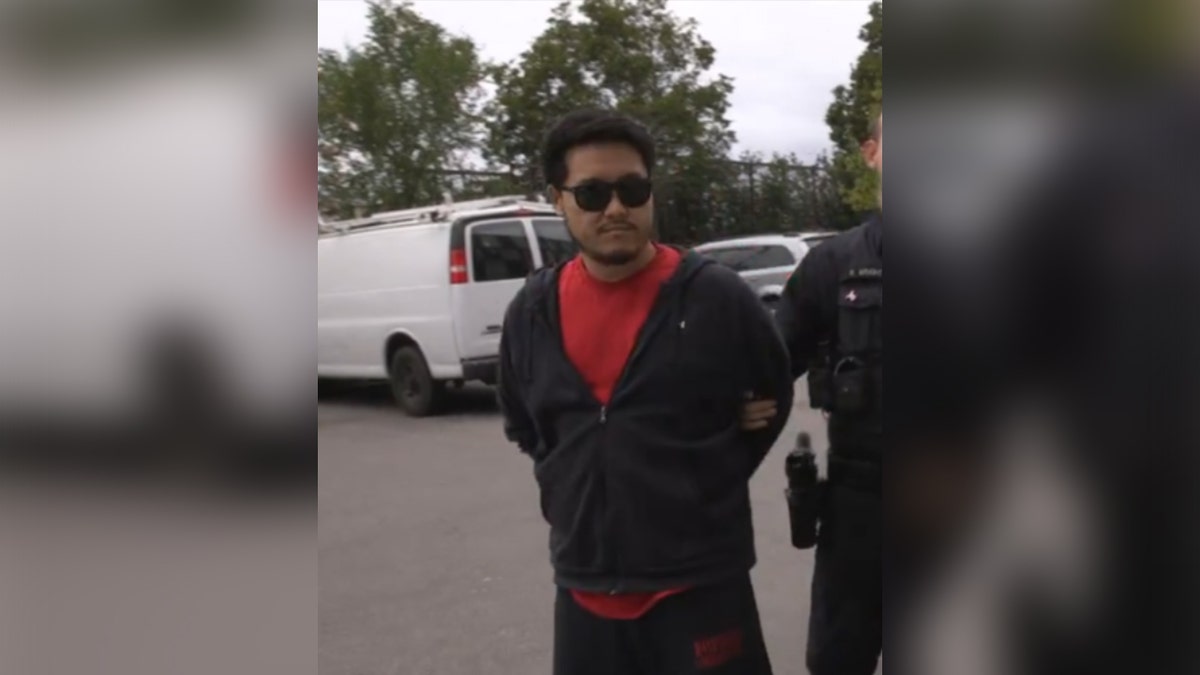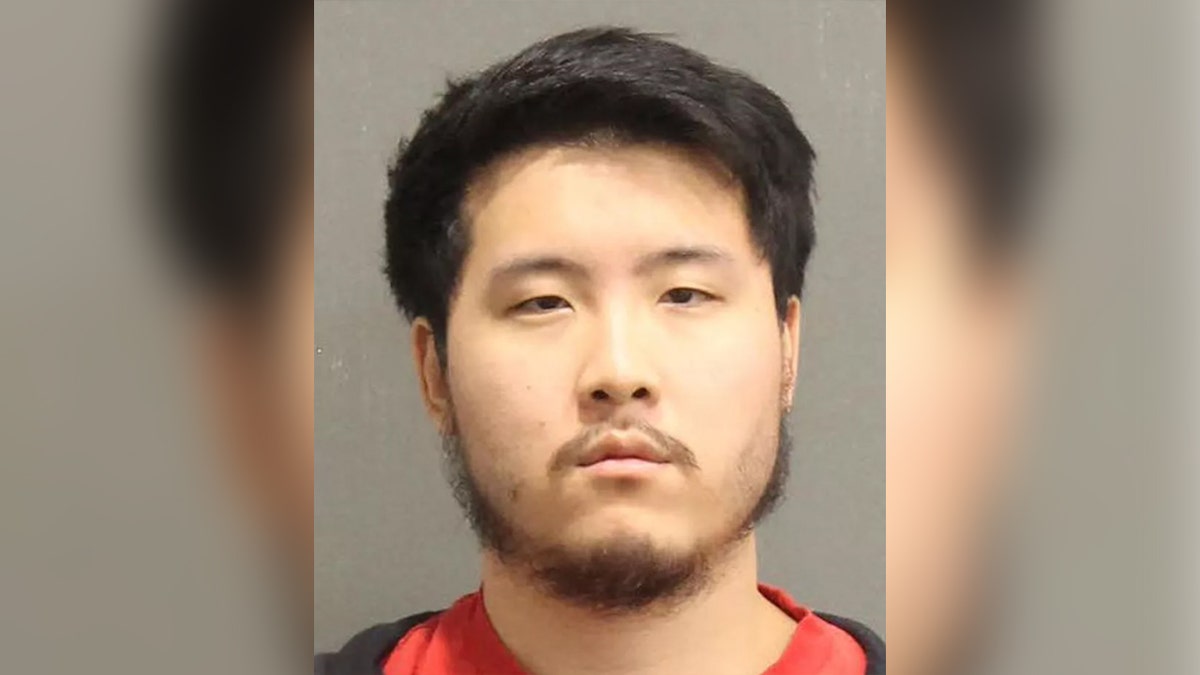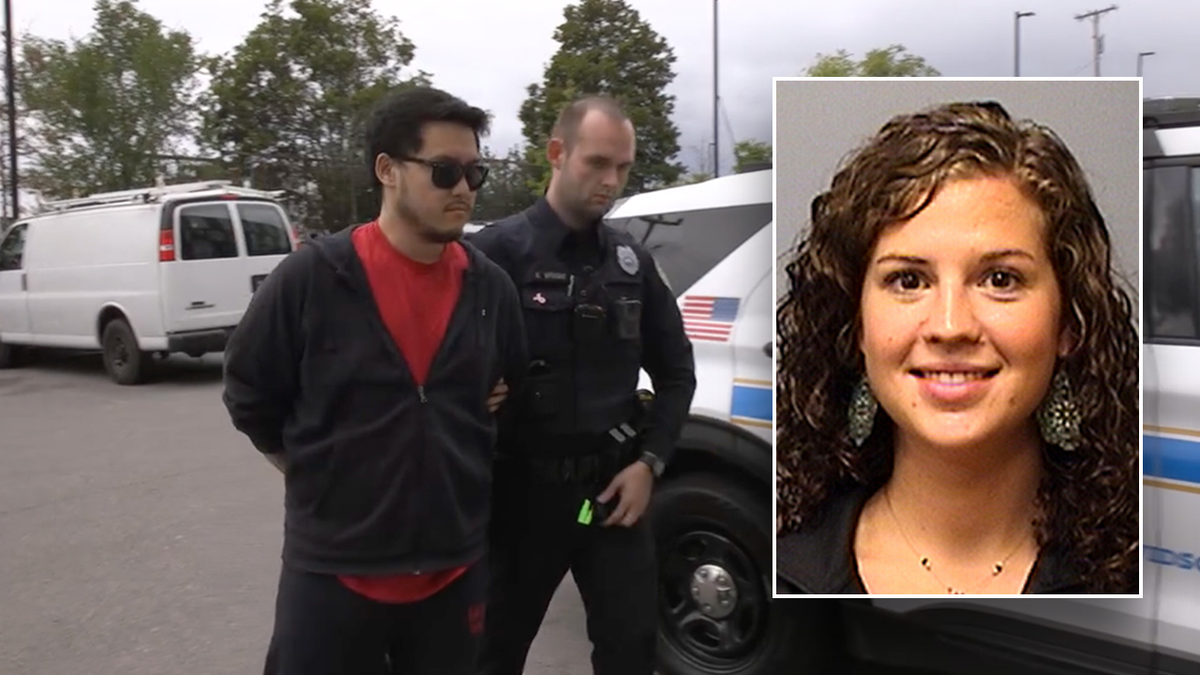Nashville Police arrest person of interest in Mill Creek Greenway murder
Less than 24 hours after Alyssa Lokits was shot to death while exercising, police mad an arrest in her murder. (Credit: Metropolitan Nashville Police)
A Nashville woman was heard screaming for help by witnesses before she was found dead – police were able to track her alleged killer down using dashcam footage from a helpful civilian and a detective who had worked a case involving his twin.
Last week, the Metro Nashville Police Department announced the arrest of 29-year-old Paul Park in connection with the death of 34-year-old Alyssa Lokits.
The woman was exercising on the Mill Creek Greenway trail in Nashville on Monday, Oct. 14. Security cameras show Park allegedly emerging from between two parked vehicles and "following her at a brisk pace," the department wrote in a press release.
After the two left the view of the camera, witnesses heard a woman scream "Help! He's trying to rape me!" Then, police said, the witnesses heard gunfire.
SOCIAL MEDIA GIANT PARENT FIRES INTERN FOR 'MALICIOUSLY' INTERFERING WITH AI PROJECT

Paul Park, 39, was arrested by the Metro Nashville Police Department on Oct. 15 in the death of Alyssa Lokits. (Metro Nashville Police Department)
Park was seen a short while later with scratches on his arms and blood on his clothing as he returned to his gray BMW sedan.
Detectives didn't get a break in the case until a local resident provided them with dashcam footage, which showed part of Park's license plate and a clearer image of his face.
A homicide detective who reviewed the footage recognized Park as the identical twin brother from a suicide case that she had worked in December 2021, CBS News reported.
"I pray that we don't have an incident where we don't have a dashcam, or we don't have someone helping us like we had in this case," MNPD Chief John Drake said at a press conference. "I'm so thankful that our people got on this – we need technology."
Even without the helpful civilian's footage, new technology pioneered by artificial intelligence software can help police investigate cases like the Nashville killing. Veritone is one of the companies spearheading that movement.

The license plate of Paul Park's gray BMW sedan wasn't captured on surveillance footage – but thanks to a partial license plate number captured by a hiker's dashcam, police were able to arrest the accused killer. (Metro Nashville Police Department)
Veritone Track, one of several functions in a suite of services for law enforcement, uses artificial intelligence to run one photo or video of a vehicle – like the video captured on the park's surveillance footage – against stoplight cameras, body-worn cameras and other municipal surveillance footage available to police to find a match.
"Both federal and local law enforcement have a major data problem," Veritone CEO Ryan Steelberg told Fox News Digital. "They are now capturing body camera [footage] and dashcams. They have cameras all over the city. Citizens are uploading videos."
"They simply do not have the budgets or the staff to start going through all this audio and video content," Steelberg continued. "Machines are needed to help law enforcement sift through this tonnage of data."
WATCH: Veritone CEO explains AI software that can help hunt down suspects
In cities with high-resolution cameras available to police, Steelberg said, the technology can discern the make and model of a car, and even small imperfections like dents that make it stand out.
"Typically, when we're in an investigation, we are getting very, very good at finding, for example, that white Honda Accord 1986 that has a dent on its left side," Steelberg said.

Nashville Police announced a suspect was arrested less than 24 hours after the murder of Alyssa Lokits. (Metropolitan Nashville Police/Vanderbilt University)
According to Amnesty International, the New York Police Department has access to more than 20,000 video feeds throughout the city's streets, subways and parks. Philadelphia police have access to 7,000 camera feeds, The Inquirer reported.
Drake noted at the press conference on Park's arrest that more security cameras and license plate readers could help with law enforcement in his city.
"One of our members here [was] talking to the Shelbyville police chief, and they just got license plate readers and... 12 cameras," he said. "Within two hours, they got two stolen cars... I hope that this city realizes that this is a very valuable tool that every county that touches Davidson County has... it's something that we desperately need."
Retired NYPD inspector and attorney Paul Mauro said that while the software could be useful in some scenarios, like Lokits' killing, users would be "beholden to the quality [of municipal cameras]" and could potentially face legal issues.
"I don't know if most municipal cameras are up to that," Mauro told Fox News Digital. "Most municipalities don't have a lot of money, they can't hire cops these days – this is all assuming that they have penetrative and accurate cameras."
Mauro cited United States v. Antoine Jones, a 2012 Supreme Court decision that determined Americans have constitutional protections against GPS surveillance by law enforcement, and that GPS tracking is a considered a "search" that requires a warrant under the Fourth Amendment.
CLICK HERE TO GET THE FOX NEWS APP
"Under current law right now, you can put that license plate into an LPR license plate reader and if a license plate reader elsewhere picks it up... that's perfectly legal. What [Veritone] seems to be promising is that they can do that to cars without the necessity of getting a plate," Mauro explained.
"But if you go any further than that, let's say for instance: 'Look, we got this car, we don't know who's driving it but put it into the AI so we can follow it around and see who he visits,' that's a very different story."
"[If needed], you can get a search warrant – there's no reason that you can't get a search warrant," Mauro said.












































